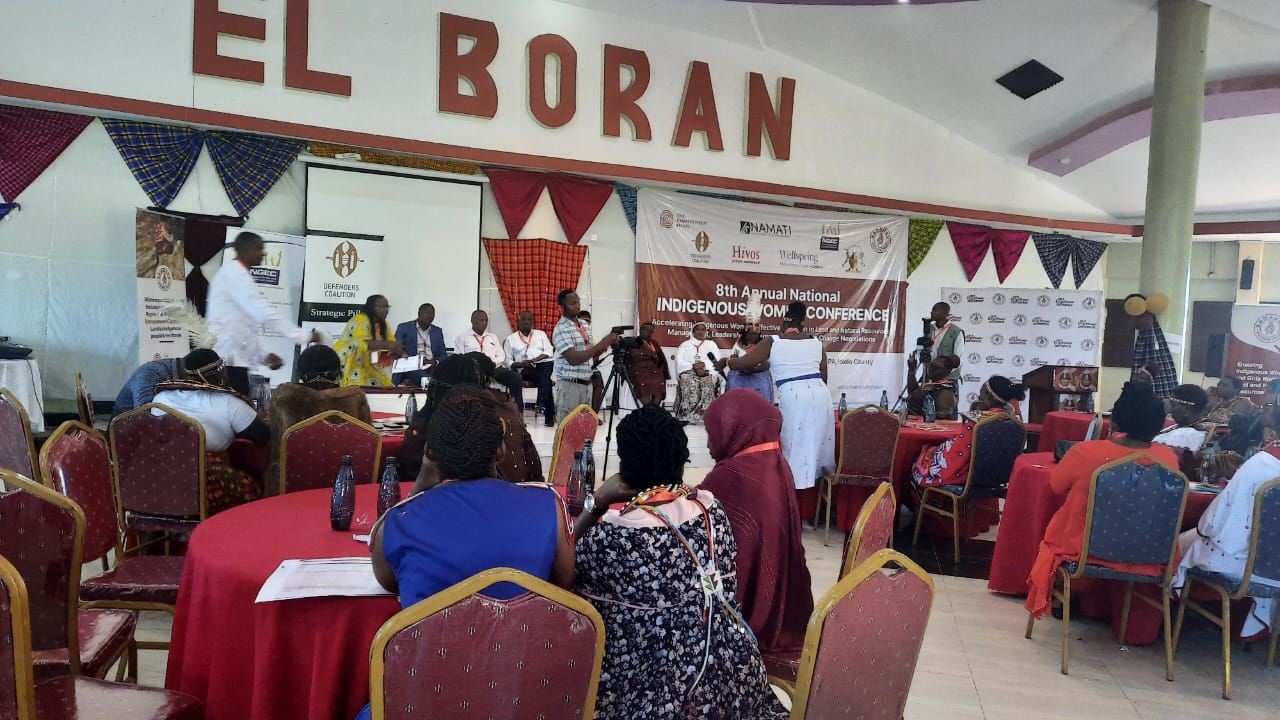As the custodians and main users of land, indigenous women feel the burden of climate change the most. At the same time, indigenous women's spaces in land decision-making and property rights have been limited over the years.

By Carol Ngala
Having spent a wonderful week in Isiolo County for the 8th Annual Indigenous Women Conference 2023, I'm just now getting over it. Convened by Samburu women's trust., the conference was attended by more than 150 delegates from Kenya, Uganda, and Tanzania aiming to strengthen indigenous women's Participation in Land Governance and Climate Negotiation. Participants included indigenous women who also doubled as human rights defenders and leaders from their communities, partner organizations, government officials and Donors.
Thousands of laughs and hugs were given and received as we moved through this space together as indigenous women and allies. The relationships formed with experts, feminists, female leaders, and male feminists—to whom we affectionately referred to as "fellow women "—were the best part of the conference.
Here’s what I learned at the conference!

As the custodians and main users of land, indigenous women feel the burden of climate change the most. At the same time, indigenous women's spaces in land decision-making and property rights have been limited over the years.
Over the past few years, climate change has brought different dynamics, for instance, the continuous water amercement in Lake Bogoria and Baringo, drought in Pastoral community land, and continuous deforestation in major forests where hunters and gatherers live in. This has caused evictions and many pastoral women have been forced to move from their ancestral land in search of pasture for their livestock. Due to the drought, pastoral communities lost the highest number of livestock between 2021 and 2022. Emergency coping strategies and food insecurity has led to injustices within homes as women, such as teenage pregnancies, gender-based violence, and increased sale of land, often without the consent of women.
The 8th Annual Conference brought attention to the stories and realities shared by indigenous women on land use and climate change, culminating in a call to action to increase women’s voices in land and property rights, to develop a behavioral adaptation strategy on climate change for the indigenous community, to increase awareness on climate justice, to understand the realities indigenous women face, and to categorically recognize indigenous women’s efforts in negotiating land rights and mitigating climate change. These hopes were echoed in a speech by the CEO of the National Land Commission (NLC), Hon. Kabale Tache, speaking to how the NLC can help address historical land injustices as a means of granting indigenous women access to and ownership of land.
Personally, my biggest take away from the conference is on how we can together build collective action both at local, national and international level and how we can build women’s agency to participate in leadership and governance by proactively engaging them in policy-making and local advocacy. At TICAH, our programs seek to ensure women's participation and decision-making at all levels, and we aim to enhance our programming to promote land ownership among women in the next year.
